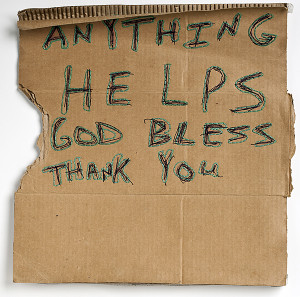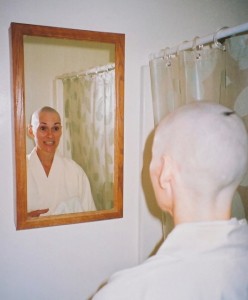
Life is full of difficulties: things that are hard for us to handle. Sometimes those things are difficult people, and sometimes those things are difficult circumstances, but what we have to see is where the difficulty comes from. As long as we think the problem lies outside of us, nothing changes. We can rail against a person or situation with our anger or blame, but then, who’s being difficult?
Buddha Dharma gives us a straightforward answer in the Ten Grave Precepts. Not to be confused with commandments, laws, rules or ethical boundaries, the precepts simply show us how we make things difficult, and how to make things less difficult by letting go of our egocentric views.
The precepts have been re-interpreted in different ways intending to make them more understandable or relevant to modern times. In my practice tradition, we still use the language that came from the first Chinese translations of the earliest Buddhist texts. That’s where we find a not-so subtle clue to disciplining our behavior and transforming difficulty into ease.
I vow to refrain from killing.
I vow to refrain from stealing.
I vow to refrain from unchaste behavior.
I vow to refrain from telling lies.
I vow to refrain from being ignorant.
I vow to refrain from talking about others faults or errors.
I vow to refrain from elevating myself and blaming others.
I vow to refrain from being stingy.
I vow to refrain from being angry.
I vow to refrain from speaking ill of the Three Treasures.
On first glance, we may not see the clue. After all, we tell ourselves, we don’t kill, steal or lie! We’re nice, not mean. We give money and old clothes to charity. And more than that, we’re right about most of the things that other people are wrong about.
But the clue is in none of those things. The clue is the word “refrain.” What we are vowing to refrain from is letting ourselves be controlled by the ego-driven “I” that wants to impose itself on others in self-centered ways. The practice of refraining is multi-dimensional and profound. It requires self-awareness, self-admission and self-control before taking action. And it makes a big difference. In the words of Dogen Zenji in The Treasury of the True Dharma Eye, “refraining is not something that worldly people are apt to think of before concocting what they are going to do.” Pain and suffering result from actions taken by people who do not refrain.
There are no limits to the good that comes from what you don’t do.
This blossoming of strength will extend beyond all places, all worlds, all times, and all things. And the measuring of it will take “refraining” as its yardstick.
New dharma talk, “Refrain From All Evil Whatsoever”
Photo by Anne Nygård on Unsplash





 Become the least grain of sand on the beach. —Maezumi Roshi
Become the least grain of sand on the beach. —Maezumi Roshi
 Sometimes people ask me a question like, “How do I work with my anger?” I give them an answer like this.
Sometimes people ask me a question like, “How do I work with my anger?” I give them an answer like this.

